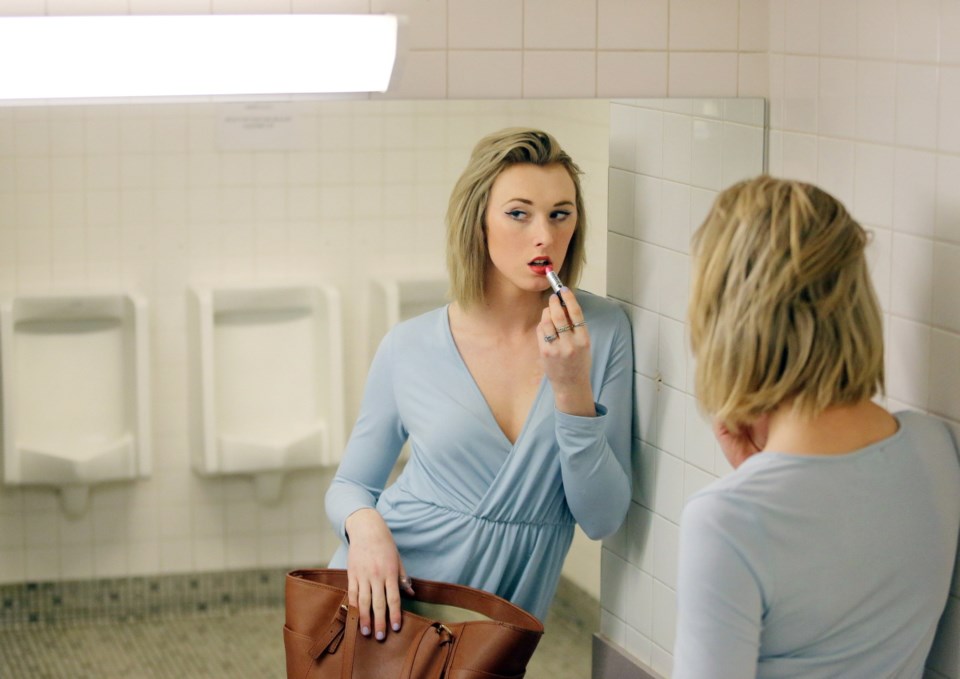Using the bathroom is no big deal for most people, but for Brae Carnes, it’s a political act.
The transgender woman, 23, is using men’s facilities to show that an amendment to a trans-rights bill could expose transgender people to danger.
The amendment would give operators of single-sex facilities — such as bathrooms, shelters and prisons — the power to prevent trans people from using facilities that match their gender identity.
“I’m giving them what they want,” Carnes said.
“I’m actively showing them what it would look like if that became law and how completely ridiculous it is. It’s just not right.”
The Victoria resident said it’s uncomfortable for everyone in the men’s bathroom, including herself, when she enters.
“There’s a sense of, oh, I’m in the wrong place,” she said.
“And it’s scary. Luckily, I haven’t had any altercations in the men’s room thus far. But they look at me like, ‘What is she doing here?’ It’s very awkward for them and it puts them in an awkward situation.”
Esquimalt-Juan de Fuca NDP MP Randall Garrison introduced Bill C-279 in 2011, saying transgender people should enjoy the same rights as everyone else. The bill would alter the Canadian Human Rights Act and Criminal Code to protect people from discrimination on the basis of gender identity.
Bill C-279 passed in the House of Commons in 2013, but has languished in the Senate since.
Conservative Sen. Don Plett, who introduced the amendment, said he wants to protect vulnerable people such as women who have experienced abuse from the trauma of sharing a space with anyone who is “biologically male.”
But Garrison said the main goal of the amendment is likely to create a delay, since if the bill doesn’t become law before the election expected this year, it will die.
He said that he doesn’t believe Plett’s amendment will ever become law.
“I would encourage people to continue using restrooms that are appropriate to their gender identity,” Garrison said.
Makenna Rielly, executive director of both the Victoria Sexual Assault Network and the Victoria Women’s Transition House, said the organizations serve transgender community members and neither would stop if the amendment became law.
“This whole thing really bugs me, that this amendment was supposedly protecting women who’ve experienced abuse. We see this as a huge setback,” Rielly said.
“People don’t understand that trans people face 50 to 70 per cent of assaults in washrooms.”
Carnes said the amendment puts vulnerable people who are already subject to sexual violence and assaults in more danger.
“Why would you put, for lack of a better word, an ‘endangered’ person into situations where they’re going to be even more are risk?” Carnes said she hasn’t experienced any serious incidents. But after using a men’s room at a local mall, she was followed by a man to her car. He knocked on her window, trying to pick her up.
“I think [the amendment] is actually giving predators a chance and an opportunity. People think, ‘Why’s this girl in the washroom? She must be looking for a guy,’ ” Carnes said.
This is a corrected version of an earlier story.



